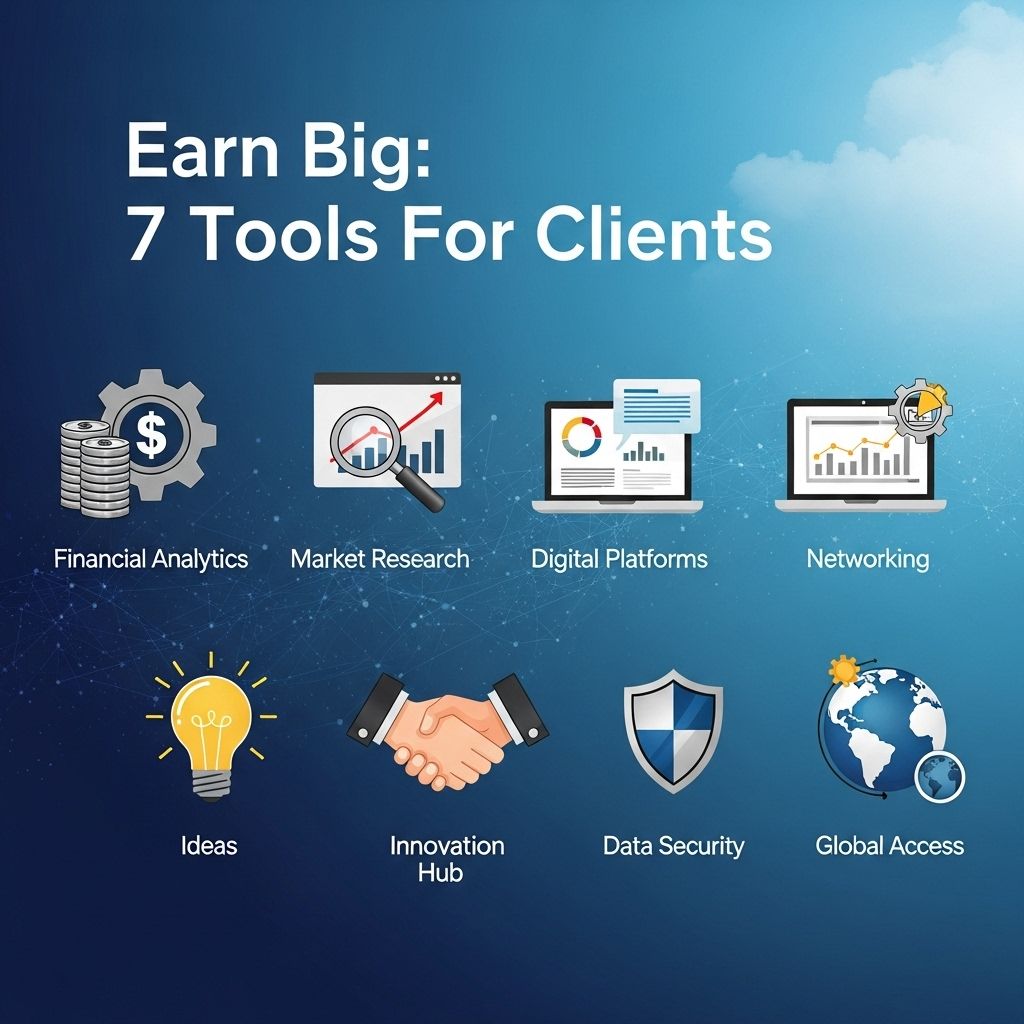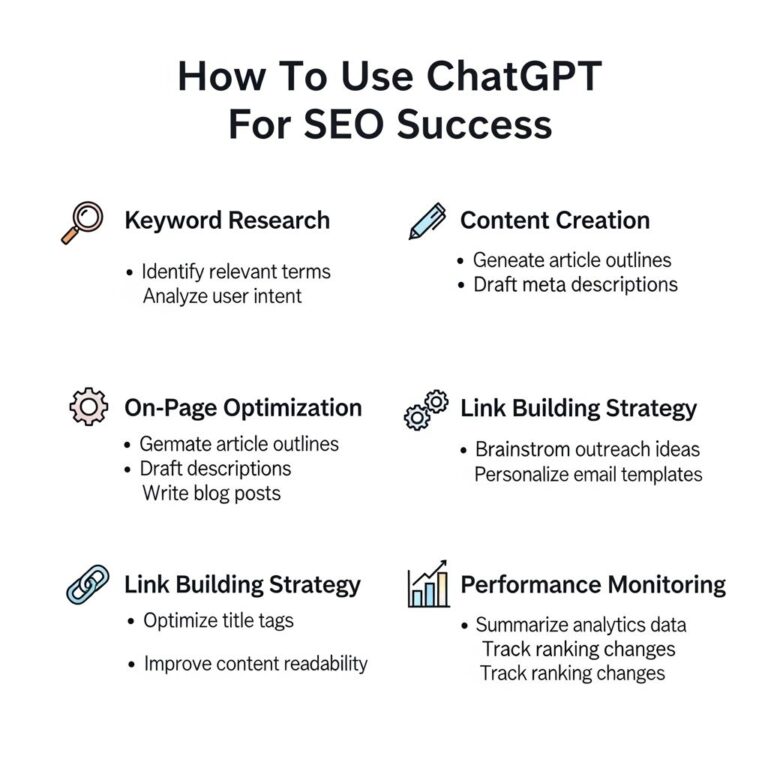In the fast-evolving landscape of digital marketing and client management, having the right tools can be the difference between mediocre results and outstanding success. For professionals looking to optimize their services, boost client satisfaction, and ultimately earn more, leveraging the best tools is essential. Here, we explore seven powerful tools that can help you streamline your processes, improve client relationships, and drive impressive revenue growth.
Table of Contents
1. Project Management Software
Managing multiple clients and projects can quickly become overwhelming. Utilizing project management software can help you keep everything organized. Some popular options include:
- Trello
- Asana
- Monday.com
- ClickUp
These platforms allow you to:
- Assign tasks to team members
- Set deadlines
- Track progress
- Communicate effectively with clients
Benefits of Using Project Management Tools
By centralizing all aspects of project management, these tools promote transparency and accountability:
- Enhanced Collaboration: Team members can easily share updates, files, and feedback.
- Time Management: Keep track of deadlines effectively.
- Priority Settings: Focus on what matters most for your clients.
2. Customer Relationship Management (CRM) Systems
A good CRM system is vital for maintaining strong relationships with clients. It allows you to keep all client information centralized and accessible. Here are a few leading CRM systems:
- Salesforce
- HubSpot
- Zoho CRM
- Freshsales
Key Features to Look For in a CRM
| Feature | Description |
|---|---|
| Contact Management | Store and manage client contacts in one place. |
| Sales Tracking | Monitor sales activities and performance. |
| Reporting and Analytics | Generate reports that help you understand client interactions. |
| Email Integration | Connect your emails to track communication. |
3. Email Marketing Platforms
Email marketing is a powerful way to nurture leads and maintain contact with existing clients. Tools like:
- Mailchimp
- Constant Contact
- SendinBlue
…can help you create, send, and analyze email campaigns efficiently.
Advantages of Email Marketing
- Direct Engagement: Communicating directly with clients.
- Personalization: Tailoring messages based on client preferences.
- Performance Tracking: Analyze open rates, click rates, and conversions.
4. Social Media Management Tools
With social media being a pivotal marketing channel, effective management can boost your clients’ visibility. Tools like:
- Buffer
- Hootsuite
- Sprout Social
…allow you to schedule posts, engage with audiences, and analyze performance across platforms.
Why Use Social Media Management Tools?
These tools offer several benefits:
- Time Saving: Schedule posts in advance to maintain consistent engagement.
- Comprehensive Analytics: Gain insights into audience behavior and engagement.
- Multi-Platform Management: Manage all social accounts from one dashboard.
5. Accounting Software
Accurate financial management is crucial for any business. Accounting software can simplify invoicing, expense tracking, and financial reporting. Consider using:
- QuickBooks
- Xero
- FreshBooks
Features to Look for in Accounting Software
| Feature | Description |
|---|---|
| Invoicing | Create and send invoices quickly. |
| Expense Tracking | Record and categorize expenses effortlessly. |
| Tax Management | Generate reports for easier tax preparation. |
| Integrations | Connect with other tools like CRMs and banks. |
6. Online Collaboration Tools
In today’s remote work environment, collaboration tools are essential. They allow teams to work together seamlessly, regardless of location. Popular choices include:
- Slack
- Microsoft Teams
- Google Workspace
Benefits of Effective Collaboration Tools
- Improved Communication: Foster better communication among team members.
- File Sharing: Share documents and collaborate in real-time.
- Integration Capabilities: Easily integrate with other software.
7. Analytics and Reporting Tools
Understanding data is critical for making informed decisions. Powerful analytics tools can help track KPIs and performance metrics. Some tools to consider are:
- Google Analytics
- Tableau
- Power BI
Why You Need Analytics Tools
Analytics tools provide valuable insights that can drive strategic decisions:
- Data-Driven Decisions: Make informed choices based on actual data.
- Performance Monitoring: Track how well your strategies are performing.
- Identify Trends: Spot trends and adjust your approach accordingly.
Conclusion
Leveraging the right tools is essential for any professional looking to elevate their services and maximize earnings. By adopting these seven tools for client management, project organization, marketing, and analytics, you can enhance your operations and provide exceptional value to your clients. Remember, the key to success lies in continuous improvement and adapting to the changing landscape of your industry.
FAQ
What are the best tools for managing client relationships?
Some of the best tools for managing client relationships include CRM software like HubSpot, Salesforce, and Zoho, which help track interactions and improve communication.
How can project management tools benefit client work?
Project management tools like Trello, Asana, and Monday.com enhance collaboration, keep projects organized, and ensure deadlines are met, leading to better client satisfaction.
What financial tools can help in managing client billing?
Financial tools such as QuickBooks, FreshBooks, and Wave can streamline billing, invoicing, and expense tracking, simplifying the financial aspect of client work.
Are there tools for improving client communication?
Yes, tools like Slack, Zoom, and Microsoft Teams facilitate real-time communication and can enhance client engagement through video calls and instant messaging.
What analytics tools can help measure client success?
Analytics tools like Google Analytics, SEMrush, and HubSpot provide insights into client performance, helping you track success metrics and optimize strategies.
How can automation tools improve client service?
Automation tools like Zapier and Mailchimp can automate repetitive tasks, such as email marketing and follow-ups, allowing you to focus more on delivering quality service to clients.









